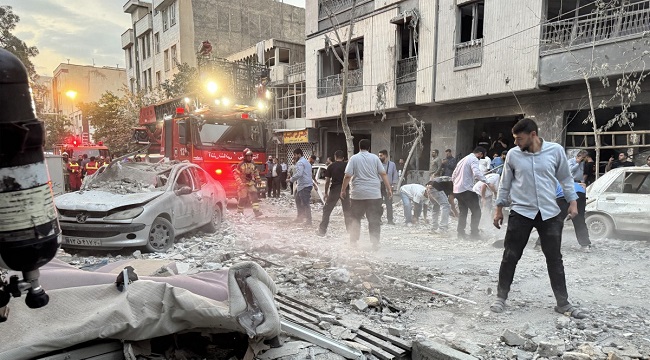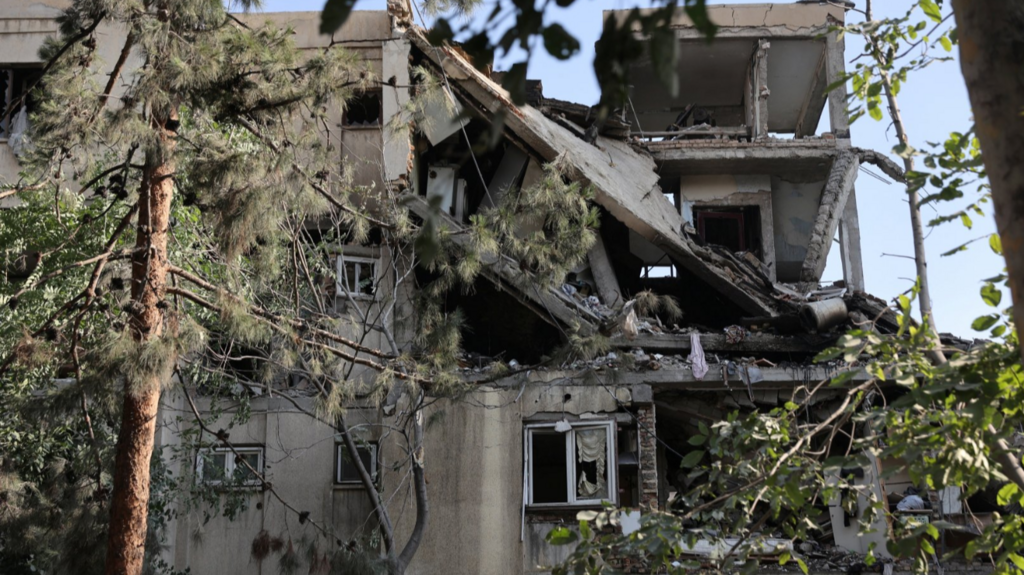
Wafric News - June 13, 2025
Israel’s large-scale airstrikes on Iran have sent shockwaves through the region, exposing what analysts describe as deep vulnerabilities in the Islamic Republic’s security and military infrastructure.
The Friday attacks — described by Israeli officials as targeting over 100 strategic sites, including nuclear and military installations — reportedly killed several high-ranking Iranian officials. Among the casualties were leaders of the Islamic Revolutionary Guard Corps (IRGC), top military brass, and nuclear scientists critical to Iran’s controversial atomic programme.
In the wake of the strikes, Iran’s Supreme Leader Ayatollah Ali Khamenei vowed severe retribution, promising a “bitter and painful” outcome for Israel. Yet, military experts argue that Iran’s ability to mount a credible counteroffensive may now be in question.
“This was not just a physical strike, but an intelligence victory of existential scale for Israel,” said Ali Fathollah-Nejad, director of the Center for Middle East and Global Order (CMEG) in Berlin. “It highlights the regime’s exposure — not only in its nuclear sites, but in the highest ranks of its defense command.”
The attacks mark a new chapter in the long-standing hostility between the two regional rivals. Israel has conducted covert operations in Iran before, but Friday’s offensive stands out for its scale and coordination.
According to reports, the Israeli Defense Forces (IDF) successfully hit the fortified nuclear facility in Natanz — long believed to be at the heart of Iran’s uranium enrichment efforts. Although Iranian state media downplayed the damage, intelligence firm Janes suggested the strike “almost certainly” compromised Iran’s enrichment capabilities.
A Struggle to Respond
The loss of senior officials — including Armed Forces Chief of Staff Mohammad Bagheri and IRGC commander Hossein Salami — has left a leadership vacuum that could paralyze Iran’s response strategy, observers say.
“The Iranian leadership is stuck between difficult choices,” said Clement Therme of Sorbonne University. “Any direct retaliation against U.S. or Israeli interests could trigger a much larger conflict, one that Tehran may not be prepared to handle militarily or economically.”
Iran’s military reportedly attempted a drone retaliation, launching over 100 drones toward Israel. However, Israeli officials claimed the majority were intercepted outside its territory.
Nuclear Diplomacy in Crisis
These events unfold against the backdrop of faltering nuclear diplomacy. For months, talks aimed at reviving the 2015 nuclear agreement — known formally as the Joint Comprehensive Plan of Action (JCPOA) — have stalled. The original deal collapsed in 2018 after former U.S. President Donald Trump withdrew American participation and reimposed sanctions.
In recent weeks, Western powers have accused Iran of deliberately intensifying its uranium enrichment activities, prompting new fears over Tehran’s nuclear ambitions. On Thursday, Iran’s Atomic Energy Organization announced plans to “significantly” boost production, in defiance of UN nuclear oversight.
Some analysts believe the Israeli strikes may have been strategically timed to undercut any diplomatic momentum. “This could derail President Trump’s attempts to resurrect a deal with Iran,” said Ellie Geranmayeh of the European Council on Foreign Relations. “It is unlikely that Iran will now attend the next round of talks scheduled in Oman.”
Still, Washington has expressed hope that diplomatic efforts can continue. A U.S. official told reporters that the door to dialogue remains open, even as Trump warned Iran to “make a deal before there is nothing left.”

Economic Strain and Strategic Uncertainty
Iran’s deteriorating economy may further complicate its options. A Western diplomat recently described the financial situation as “cataclysmic,” citing a dire need for sanctions relief, investment, and reform.
“This is Tehran’s bind,” said Ali Vaez of the International Crisis Group. “Striking back might satisfy domestic pressure, but it could also jeopardize the possibility of economic survival. Alternatively, restraint could embolden rivals and undercut Iran’s strategic posture.”
Vaez added that far from deterring Iran, the strikes might harden its resolve. “It’s possible Iran doubles down, accelerating its pursuit of a nuclear deterrent to avoid future vulnerabilities.”
As tensions escalate, the region now watches for Tehran’s next move — one that could determine not just Iran’s military standing, but the fate of an already fragile Middle East.
By WafricNews Desk.


Comment
To post a comment, you have to login first
LoginNo Comments Yet...